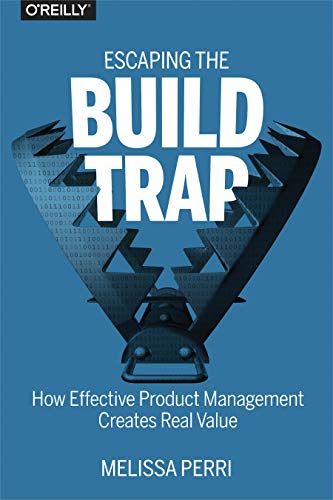Lenny Rachitsky
Newsletter: https://t.co/LF0tRFGFgT, Podcast: https://t.co/ZQWNT00OhB, Jobs: https://t.co/h5qbpdYMK5, Investing: https://t.co/ibfQ6tSEMJ
Book Recommendations:
Recommended by Lenny Rachitsky
“@MoFromYYZ 😍 You might enjoy her second book too in your current situation.” (from X)
by Michelle Rial·You?
A visual pep talk of charts and essays on feeling better about not feeling better. Maybe This Will Help is one part the funny and relatable graphs that fans of Am I Overthinking This? and of Michelle Rial know and love, and one part the honest stories behind what makes those graphs so poignant. Michelle Rial brings to light her struggles with chronic pain, grief, and creative uncertainty in a way that reflects the universality of dealing with the unthinkable. Equal parts funny and moving, this book delves into the more serious side of things, finding levity and collective experience in the invisible difficulties that so many of us face. Through humorous charts and intimate peeks into the author's life, it explores the big things that can feel unmanageable and the everyday humor that keeps us moving forward. SELF-HELP WITH HUMOR: This book brings levity and laughter to serious topics without undermining the important message and relatability that makes it resonate. BELOVED AUTHOR: Michelle Rial's first book was beloved by her tens of thousands of fans as well as by the media, including Wired, Vulture, Book Riot—and the New Yorker even published her chart-based article on "Book Publishing by the Numbers." JUST THE RIGHT TONE: This book perfectly captures trying to figure out the "magic pill" that will fix things, struggling to find peace in how things are, and the humor in even the hardest times. It makes an ideal gift for someone struggling with physical or mental pain when you want to help but aren't sure how to. Perfect for: Fans of Michelle Rial's Instagram and first book, Am I Overthinking This?; people in their 20s and 30s grappling with big life changes or chronic illness
Recommended by Lenny Rachitsky
“The best book I've ever read on getting better at sales is Founding Sales by @Kazanjy. It's the book I've recommended most often to founders (by far). Thus, I was very excited to have @Kazanjy on the podcast to share his best advice on the skill of selling. Don't miss it 👇 https://t.co/wwf5FWzZ7C” (from X)
by Peter R Kazanjy·You?
by Peter R Kazanjy·You?
This book is specifically targeted for founders who find themselves at the point where they need to transition into a selling role. Specifically founders who are leading organizations that have a B2B, direct sales model that involves sales professionals engaging in verbal, commercial conversations with buyers. Moreover, many examples in this book will be targeted specifically to the realm of B2B SAAS software, and specifically as regards new, potentially innovative or disruptive offerings that are being brought to market for the first time. In short, direct sales of the sort a B2B SAAS software startup would engage in.With that said, if you are looking to be a first time salesperson, transitioning in from another type of role, or fresh out of school, in an organization that meets those characteristics above, you will get value out of this book.Similarly, if you are a first time sales manager, either of the founder type, or a sales individual contributor who is transitioning into that role, again, in an organization who meets the criteria above, you will also get value from this book.
Recommended by Lenny Rachitsky
“@jeremyfiel @cagan @robfitz @ttorres @lissijean Same! Love that book.” (from X)
To stay competitive in today’s market, organizations need to adopt a culture of customer-centric practices that focus on outcomes rather than outputs. Companies that live and die by outputs often fall into the "build trap," cranking out features to meet their schedule rather than the customer’s needs. In this book, Melissa Perri explains how laying the foundation for great product management can help companies solve real customer problems while achieving business goals. By understanding how to communicate and collaborate within a company structure, you can create a product culture that benefits both the business and the customer. You’ll learn product management principles that can be applied to any organization, big or small. In five parts, this book explores: Why organizations ship features rather than cultivate the value those features representHow to set up a product organization that scalesHow product strategy connects a company’s vision and economic outcomes back to the product activitiesHow to identify and pursue the right opportunities for producing value through an iterative product frameworkHow to build a culture focused on successful outcomes over outputs.


